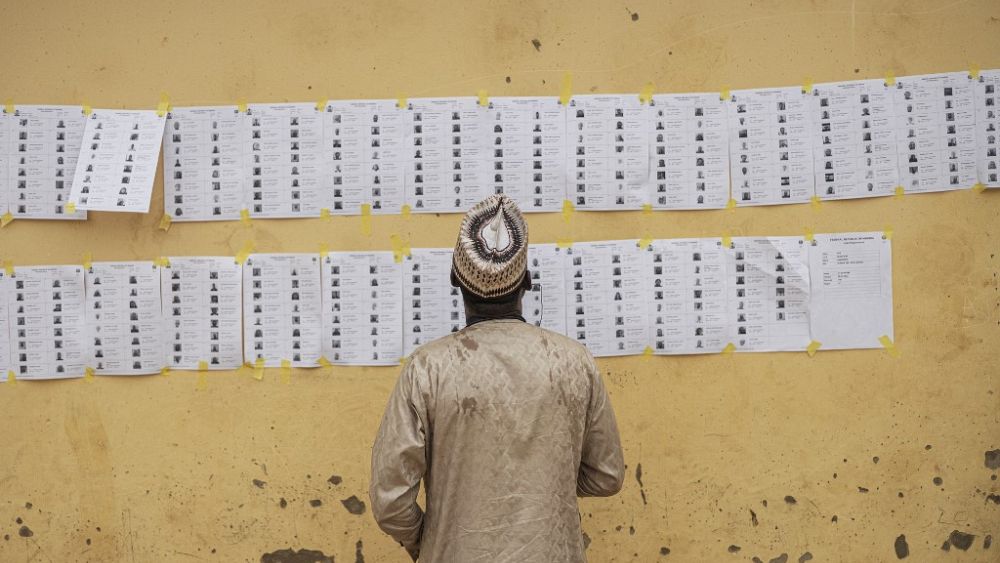It is being labelled the tightest presidential election in Africa’s most populous country since the end of the military rule in 1999.
Vote counting is under way in Nigeria and turnout appeared to be high. It could take days until the final, official result is announced.
Marred by long delays at polling stations, as well as scattered reports of ballot box snatching and attacks by armed men, some frustrated Nigerians cast their ballots with flashlights while others stood watch at their polling stations as counting got under way late Saturday amid fears of vote tampering.
Election officials blamed the delays on logistical issues, though other observers pointed to the upheaval created by a redesigned currency that has left many unable to obtain bank notes. The cash shortage affected transport not only for voters but also election workers and police officers providing security.
Voting ended well beyond schedule in many places after delays but some were still voting in a few areas where the exercise stretched into the night. In the northwest Bauchi state, Lagos-based Channels TV reported that voters were still voting using their torchlights at around 9 pm.
And in Abuja and Delta state, voters stuck around to monitor the process and ensure the results were not tampered with.
“Nightfall has come — anything can happen (now),” Torke Ezekiel said after casting his ballot.
While there were fears of violence on Election Day, from Islamic militants in the north to separatists in the south voting was largely peaceful Saturday though a dramatic scene unfolded in the megacity of Lagos in the mid-afternoon.
Mahmood Yakubu, head of Nigeria’s election commission, said national collation of results in the presidential election would commence at noon on Sunday. In 2019, the winner of the presidential election was announced four days after the voting day.
“We are making very steady progress and we will continue to ensure that nothing truncates our democracy or truncates the will of the Nigerian people,” said Yakubu, the election chief.
However, Mucahid Durmaz, senior analyst at Verisk Maplecroft, a global risk intelligence company, said voting “has been very complicated for Nigerians.”
There have been “widespread complaints about late-arriving officials, nonfunctioning machines, low presence of security and attacks on polling stations,” he added.
Incumbent President Muhammadu Buhari is stepping down after two four-year terms in Nigeria, a West African country where unemployment has soared to 33% even as one of the continent’s top oil producers.
Out of the field of 18 presidential candidates, three front-runners emerged in recent weeks: the candidate from Buhari’s ruling party, the main opposition party candidate and a third-party challenger who has drawn strong support from younger voters.
But it remained unclear how many voters were deterred because of the cash crisis, which has left Nigerians with funds in their bank accounts unable to obtain the cash they need for things like gas and taxis.
(Except for the headline, this story has not been edited by PostX News and is published from a syndicated feed.)

